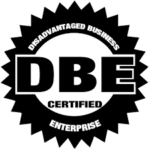Project management as we know it is dying. The old way—rigid frameworks, endless meetings, and PMP-certified managers pushing Gantt charts—isn’t just outdated. It’s actively holding businesses back. In a world where AI and automation are reshaping every industry, clinging to traditional project management methods is like bringing a paper map to a self-driving car race.
The numbers don’t lie. A report by McKinsey found that 56% of companies have already implemented AI in at least one business function, and that number is climbing fast. Meanwhile, PMI’s Pulse of the Profession report reveals that organizations waste nearly 12% of their project investment due to poor performance—a direct result of outdated methodologies that can’t keep up.
If you’re still running projects the old-school way, you’re already behind. Here’s what’s changing and how to survive the shift.
AI Is Automating What Project Managers Used to Do
Let’s be real—most traditional project management tasks are repetitive and predictable. Scheduling, resource allocation, risk assessment? AI can do these faster and with fewer errors than any human. Platforms like ClickUp, Asana, and Monday.com are already embedding AI to optimize workflows, predict bottlenecks, and automate routine decisions.
What does this mean? It means project managers who rely on task tracking and process policing are about to become obsolete. The real value now lies in strategic leadership, adaptability, and decision-making in complex, uncertain environments—not babysitting a task list.
The New Era: Adaptive, Agile, AI-Enhanced
AI isn’t just a tool; it’s an active participant in project execution. Gartner predicts that by 2030, 80% of project management tasks will be run by AI. This is no longer about adding automation here and there—it’s about a fundamental shift in how projects are managed.
So what replaces the old way? Adaptive project management, where AI handles the predictable, and human expertise focuses on strategic problem-solving, stakeholder management, and high-level decision-making. Companies that fail to embrace this shift will find themselves drowning in inefficiency while competitors move at lightning speed.
What This Means for You
If you’re leading projects today, it’s time to rethink your role. The future belongs to those who can harness AI, not fight against it. Here’s how to stay ahead:
- Stop micromanaging tasks—start managing change. AI can handle scheduling. Your job is to ensure your team can adapt to shifting priorities.
- Learn to work alongside AI, not against it. The best project managers of the future will be those who understand AI-driven insights and act on them quickly.
- Measure success differently. Instead of tracking how closely you stuck to a plan, measure how effectively you adapted to new information and unexpected challenges.
The Bottom Line
Traditional project management is dead. AI isn’t coming for your job—it’s already here, reshaping how projects get done. The question is, will you evolve with it or get left behind?
At Saulsberry Group, we help businesses navigate this shift, combining AI-driven efficiency with human-centered leadership to deliver real results. If you’re ready to future-proof your approach to project management, let’s talk.
📅 Schedule a consultation today: Book an appointment



